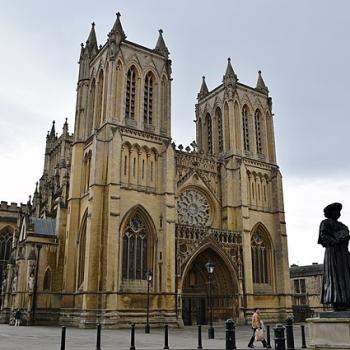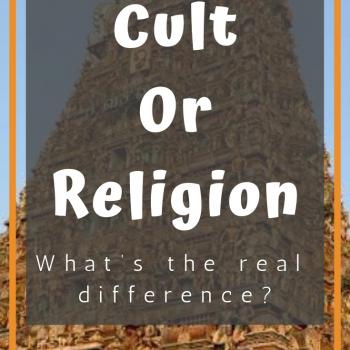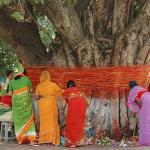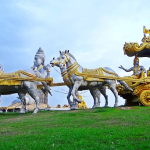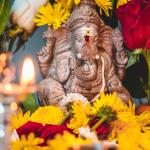Today I have a guest post for you all by Mukul Shri Goel. Enjoy!
When Ms. Ambaa Choate suggested that I write about the changes I have experienced in my spiritual life, I was a little surprised at the suggested topic because I am not a famous personality and have no creditable contributions in spirituality. Yet I liked the topic, for it gave me a chance to think about how my spiritual life has evolved over the years.
Born in New Delhi (India), I spent the earliest years of my life in upstate New York. Later, I completed most of my schooling in Rajasthan (India). During these years, I was basically a good science student but routine spiritual practice was practically absent from my life. As far as I remember, I always believed in God — in both Lord Rama and Lord Shiva — and had managed to read the Bhagavad Gita and the Ramacharitamanasa when I was in high school. My upbringing as a traditional Hindu taught me to respect religious-spiritual viewpoints that are different from my own.
I was probably in Grade 11 when I first met my spiritual guru, Sri Sitaram Das Ji, a saint who lives in the city of Jaipur (Rajasthan). I consider his blessings one of the strongest reasons behind my attraction to devotional spirituality. He initiated me into worshiping Lord Rama, who is considered to be the Supreme God by many Hindus and is an incarnation of Vishnu for others. During these years in Jaipur, my training in Indian classical music also brought me into contact with people who could think outside money. My music mentor, who trained me in Percussion (Tabla), was a devotee of Shakti, the Mother Goddess, and one of his elderly students, who used to accompany me on the harmonium every now and then, followed the Vaishnava devotional tradition of Saint Dadu Dayal, a famous bhakti saint who had lived in Rajasthan in the 16th century.
When I moved to New Jersey for my college education in Engineering, I had no desire of participating regularly in Hindu spirituality but wanted to gain career-oriented education in a field that I found interesting and that could lead me to a reasonable job. During my years at Penn, where my doctoral research focused on areas relevant to cardiovascular disease, I used to independently study religious scriptures over the weekend. One of my favourite books I read at that time was The Gospel of Ramakrishna. I also developed superficial interest in reading Vedic Astrology books.
Following graduation, when I moved to India again, I first thought of obtaining a faculty position in a prestigious university. But something inside stopped me from committing my entire life to a professional direction that my mind had already labelled as being perishable. If God is real, shouldn’t I spend some time in trying to find him? For the first time, I spent weeks trying to figure out what I really wanted to do, and my inner voice replied, “I want to think…think more about God and my connection with him.” Writing became a way of turning this newly discovered interest into something more tangible.
Spiritual writing as a career choice was a difficult decision, for it could mean lesser financial gains in life; also, it meant that I would no longer be contributing to Science and Technology. Maybe, people who selflessly contribute to Science and Technology first succeed in developing an aptitude in these areas, which I had not developed. The good part was that my training in Science did allow me to grab some freelance science writing projects at times to support myself.
I believe I became a spiritual writer because God did not allow me to do anything else. Also, unfortunately, I had developed some health concerns that had to be taken care of and which temporarily limited my career options. Maybe we human beings are not very free in making the choices we make in our lives. Our environment, circumstances, and interactions with every single person we meet in life have a say in dictating how we approach life. Above all, God — the Real Doer — ultimately decides what we do with our life. He supposedly has a plan for every being.
Once I started writing my Hindu spirituality blog, I recognized that I had collected some data on Hindu spirituality over time from my observations and my interactions with fellow human beings; these experiences could be put down in words. I found that I liked communicating my personal spiritual beliefs to the readers of my blog. When writing about culture, I have often focused on how human beings approach the Divine through remembrance and surrender. I have enjoyed deriving spiritual lessons from the works of devotional Hindu saints and writing down my interpretations of their messages in simple words.
As of today, my routine spiritual practice includes chanting the name of Lord Rama (God), God’s remembrance (prayers and visualization), supporting non-violence, and reading devotional scriptures. At times, I also listen to devotional music. A major objective of Bhakti Yoga is to develop trust in God, which enables us to surrender our self to God; the main aim is to gain permanent proximity to God.
Though temples are established places for spiritual connectivity and can transfer positive energies and blessings from priests and saints who regularly visit them, I rarely visit temples. I believe that God is omnipresent and should therefore be easily accessible from home as well. At the same time, for adherents who like more expressive activities, I do support participation in everyday activities like offering prayers in temples, celebrating a festival, visiting a yagna (fire sacrifice) ceremony, and offering food to a Deity at home — all these devotional activities from the Hindu way of living focus on building an eternal connection with God.
On my spiritual path, I still feel like a beginner — it may be a long journey ahead. Hopefully, God will make it easier for me as time progresses.
Mukul Shri Goel is an American spiritual writer and blogger living in India. Be sure to follow him on Twitter at @mukulshrigoel




